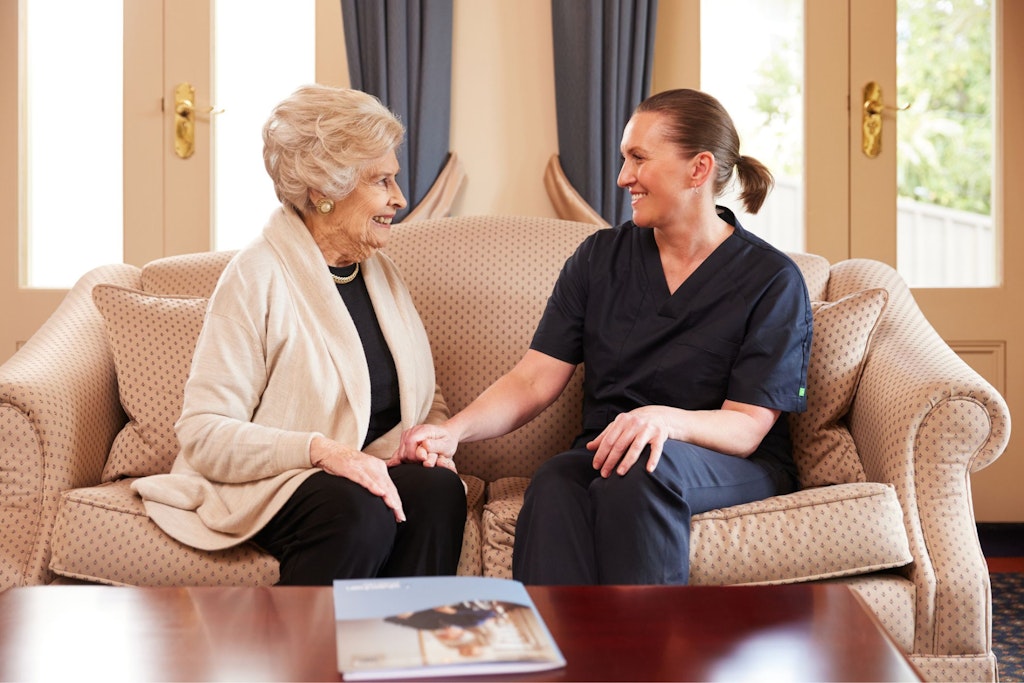Upcoming trial aims to strengthen aged care involvement in depression treatment at home
Last updated on 24 January 2024

Spurred by a desire to provide stronger support for older people with symptoms of depression, Silverchain is trialling a new model of care designed to make it easier to access psychological support and impactful resources and strategies.
Key points
- It’s believed that between 10-15% of older people experience depression, increasing to 35% of people living in residential aged care
- Enhanced Management of home-Based Elders with Depression (EMBED) provides person-centred mental health support through telehealth access to clinicians, resources, treatments and strategies
- The program was co-developed by Silverchain – a home care provider for health and aged care – and Swinburne University of Technology, with Senior Clinical Psychologist and PhD candidate Julie Kelly designing a depression program for frontline aged care workforce
- A pilot program will begin in February with 24 clients in Melbourne, followed by a clinical trial with over 1,000 home care clients across WA and SA, in partnership with multiple universities.
Adjunct Professor Tanya Davison, Silverchain’s Director of Research Discovery, told hello leaders that EMBED was specifically designed for home care recipients, a cohort that often misses out on impactful mental health treatments.
“More older people can remain at home now than in the past, so we see people at home who have increasing medical complexity, more comorbidities, higher levels of frailty or are taking more medications. With that increase in clinical complexity, we often see an increase in mental health conditions like depression,” said Professor Davison.
“Currently in Australia, older people with depression have very poor access to psychological support. There haven’t been programs specifically tailored for the care setting before despite awareness that older people who have physical health issues are at a higher risk of depression.”
“Aged care has an important role in the early detection of symptoms of depression but also in providing older people with access to psychological therapy.”

The EMBED model of care is largely based on a psychological approach called behavioural activation which focuses on the impact of the person’s daily activities and how they affect their mood. By looking at how home care clients can engage or re-engage in meaningful activities and behaviours, Silverchain hopes to achieve a healthy mental state through positive reinforcement.
A consumer group of aged care clients with lived experience of depression has helped inform the model of care’s design and Professor Davison said this consumer-informed approach is particularly useful. Many older people are reluctant to talk about their mental health and the activity-focused model of care instead focuses on overall well-being.
“A lot of older people often don’t feel comfortable seeking help from their General Practitioner. Some older people may not recognise that they have symptoms of depression, or they might not use those terms. We know there’s a stigma of mental illness in this cohort of older people so we have tailored our approach to working with older people,” she explained.
“We talk less about mental health and depression and more about emotional well-being and staying healthy. The framing of this is important and we tailor this to be acceptable to older people.”
Personalisation is at the heart of the program as clinicians will work with each client to choose modules and strategies most closely aligned to their interests and needs. This includes activities focused on reducing social isolation and loneliness.
Professor Davison said the pilot is set to begin in February with 24 Melbourne-based clients with symptoms of depression involved. The use of telehealth provides easy access to mental health clinicians for the duration, while participants also have the option of using a digital platform to access resources, communicate with their clinician and keep on top of their activities and strategies.
Aged care workers will receive additional training and support as part of the EMBED model of care to better recognise the signs and symptoms of depression so they can escalate concerns and support clients throughout the experience.
“We’re adopting a collaborative team-based approach. It’s clinically-led but our frontline staff are playing a critical role in supporting and encouraging their clients to engage in the treatments,” said Professor Davison.
“Everybody is very supportive of this approach and our frontline staff are excited to build their skills in this area and support their clients in accessing these new treatments.”
With the pilot expected to run until the middle of 2024, followed by a multi-state clinical trial with over 1,000 clients, Silverchain is excited to see how the new model of care can positively impact its clients and the wider aged care industry.
“The pilot is the first step in a larger program of work. We hope this novel model will be of interest to the broader aged care sector. We’ll be very willing to share the learning,” she added.